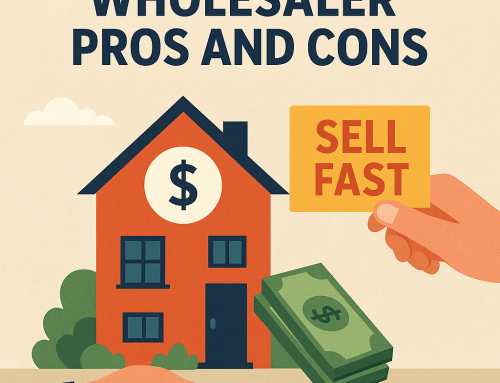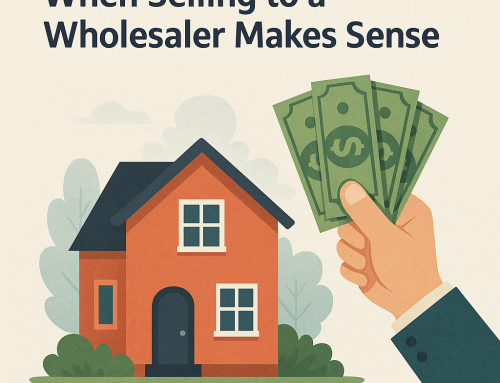- Wholesalers: Fast Cash Offers
- Advantages of Using Wholesalers
- Disadvantages of Using Wholesalers
- Real Estate Agents: Professional Guidance
- Advantages of Using Real Estate Agents
- Disadvantages of Using Real Estate Agents
- Making the Right Choice
When homeowners find themselves in a situation where they need to sell their property quickly, they often consider two primary avenues: working with a real estate agent or engaging a wholesaler. Each option has its distinct advantages and disadvantages, especially when looking for cash for home offers. Understanding these differences can empower sellers to make a more informed decision that aligns with their needs and circumstances.
Wholesalers: Fast Cash Offers
Wholesalers are individuals or companies that specialize in finding sellers who need to sell their home fast. They typically make cash offers for properties and then sell the contracts to investors. This model can be appealing, but it comes with its own set of pros and cons.
Advantages of Using Wholesalers
1. Speed of Transaction: Wholesalers often allow sellers to close quickly—sometimes within a week. If you’re in urgent need of cash for home transactions, this is a significant benefit.
2. No Repairs Required: Many wholesalers will purchase properties as-is. This means you don’t have to invest time or money into repairs, staging, or cleaning the home.
3. Less Paperwork: The process with wholesalers can be straightforward, involving minimal paperwork compared to traditional sales.
4. Lower Costs: Because wholesalers typically buy homes for cash, you can sidestep many closing costs usually associated with real estate transactions.
Disadvantages of Using Wholesalers
1. Lower Offers: The cash offers from wholesalers can be significantly below market value. They aim to profit from selling the home to an investor, which can leave sellers feeling like they’ve shortchanged themselves.
2. Lack of Transparency: Some wholesalers may not be transparent about their intentions or the offer amounts. This can lead to mistrust and confusion.
3. Limited Negotiation: Once a wholesaler provides an offer, there may be little room for negotiation, which can be frustrating for sellers who feel their property is worth more.
Real Estate Agents: Professional Guidance
On the other hand, utilizing a real estate agent brings a wealth of expertise and a support system throughout the sales process. Agents can help target buyers and often work to achieve the highest possible market value for the home.
Advantages of Using Real Estate Agents
1. Potential for Higher Offers: Agents can help sellers get competitive offers by marketing the property effectively, showcasing its strengths, and leveraging their negotiation skills.
2. Professional Marketing: Real estate agents often utilize multiple listing services (MLS), social media platforms, and other strategies to attract a broad pool of potential buyers.
3. Comprehensive Support: Agents guide sellers through the entire process, from pricing and listing to negotiations and closing, helping to alleviate stress.
4. Better Market Insights: Experienced agents can provide valuable insights into local market trends, allowing sellers to make well-informed decisions.
Disadvantages of Using Real Estate Agents
1. Longer Selling Timeline: Selling a home with an agent can take time, often from weeks to months, which may not suit those needing to sell immediately.
2. Commission Fees: Real estate agents typically charge a commission fee that can range from 5% to 6% of the sale price. These fees can add up, particularly if the home sells for a lower price.
3. Additional Repair Costs: Homes marketed through agents often need to be in optimal condition. This might involve repairs and renovations, which can be costly and time-consuming.
4. Complex Process: The sales process with real estate agents can involve extensive paperwork and a myriad of steps, which can be overwhelming for some sellers.
Making the Right Choice
Ultimately, the decision between a wholesaler and a real estate agent depends on individual circumstances. If you’re looking to sell your home fast and move on quickly, a wholesaler might be the best option, albeit at the cost of a lower selling price. Conversely, if time isn’t as critical and maximizing profit is a priority, working with a real estate agent could be the most beneficial route.
Consider your timeline, financial needs, and property condition when weighing your options. Both paths offer unique opportunities to achieve your selling goals, but being informed can help you choose wisely.




